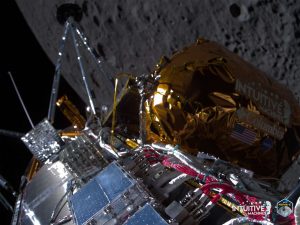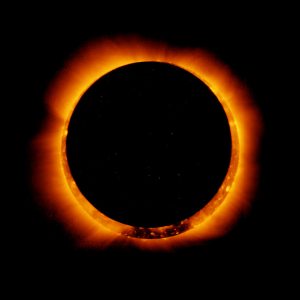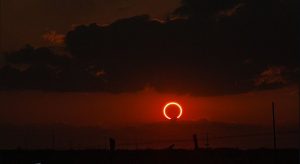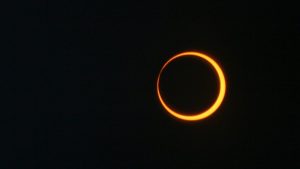Earth will experience its first eclipse of the year on April 30th, only days after the globe received images of an eclipse on Mars.
A solar eclipse happens when the Moon passes exactly in front of the Sun, effectively blocking out the light. The first eclipse of the year will be a partial one, with the Moon just blocking a portion of the sunlight.
The Moon will cover 64% of the sun’s disc as seen from Earth. The Moon will only cast its outermost shadow, known as the penumbra.
The first partial eclipse of 2022 will not be visible from India or the United States.
Also Read|Partial Solar Eclipse 2022: What is it and how to watch it?
Myths and superstitions about the Solar Eclipse
There are several superstitions associated with the solar eclipse, or Surya Grahan, ranging from restricting food consumption at a specific time to outright prohibiting people from viewing the celestial event live. Some of which are related to the foods we consume during the eclipse. Scientists have debunked the misconceptions.
Myth – Don’t eat cooked food during an eclipse
The scriptures state that the Grahan is unlucky and that one should avoid consuming food during this time since it causes numerous sicknesses. Those who even offer food at this hour, according to the holy Skanda Purana, suffer from terrible health afterwards. Ayurvedic principles state that one should consume light, easy-to-digest foods at least two hours before the eclipse. The rays are thought to degrade the characteristics of raw foods, rendering them unfit for consumption.
Also Read|Solar, lunar eclipses on April 30, May 16 to elude city
According to NASA, there is an incorrect notion that during a solar eclipse, some type of hazardous radiation is produced that will harm your food. If it were true, the same radiation would be harmful to the food in your cupboard or crops in the field.
The main premise is that solar eclipses and their ghostly green coronae appear frightening, therefore it is natural to want to make up scary stories about them and hunt for coincidences between occurrences in your environment.
Also Read|Rare Black Moon to welcome Eid 2022, followed by Venus-Jupiter conjunction, meteor shower
Myth – Pregnant women should follow dietary rules during a solar eclipse
Pregnant women should avoid eating cooked food during the eclipse since, according to mythology, cooked food becomes tainted during the eclipse, and pregnant women should avoid such meals. They should also avoid non-vegetarian cuisine, since it may induce stomach trouble.
According to NASA, there is no evidence that the eclipse has any physical effect on humans. This misconception is related to the prior incorrect belief that hazardous radiations are emitted during a total solar eclipse. The electromagnetic radiation from the corona, viewed as light, is completely safe, according to experts.
Also Read|Solar Eclipse and Black Moon on the same day: Read for timings
Myth- No leftovers should be consumed during an eclipse
Traditional beliefs claim that the rays contaminate leftover foods, which should be avoided since they might bring indigestion and stomach problems. This myth again follows the same incorrect notion that food turns poisonous due to the radiations emitted during an eclipse and experts have time and time again said that there is no truth in this traditional belief.
While some countries regard eclipses as negative omens, others, such as Italy, celebrate the day with passion, and it is said that flowers planted during a solar eclipse are more colourful and bright.






